Marine Activities Resources and Education (MARE)
MARE (pronounced mah-ray) is a school wide unit of study that uses the MARE ocean literacy curriculum to create ocean literate students and get students excited about marine science. The award winning national MARE curriculum was developed by the Lawrence Hall of Science at the University of California at Berkley. This program is administered in the Texas region by the Marine Science Institute of the University of Texas in Port Aransas.
During MARE, or 'ocean week', Davis transforms into a laboratory for the exploration of the ocean. This whole-school ocean Immersion approach explores different marine environments through the disciplines of earth, life and physical science, as well as language arts, music, mathematics and visual arts and brings teachers, students, administrators, parents, and community organizations together for improving science teaching and learning. It also serves as the centerpiece for yearlong ocean studies and creates an exciting atmosphere school-wide.
As students progress through the grade levels, they build upon concepts and processes learned in previous years. Younger grades focus on nearshore, more familiar habitats while older grades explore offshore marine habitats that are more conceptually abstract.
- Coral Reef (PK)
- Ponds (K)
- Rocky Seashore (1st)
- Sandy Beach (2nd)
- Wetlands (3rd)
- Kelp Forest (4th)
- Open Ocean (5th)
What is Ocean Literacy?
Ocean Literacy is an understanding the ocean’s influence on you and your influence on the ocean. An ocean literate person understands the ocean, can communicate about the ocean in a meaningful way, and is able to make informed and responsible decisions about the ocean and its resources.
The ocean is the defining feature of our planet. It covers most of our planet, is home to most of the life on Earth, regulates our weather and climate, provides most of our oxygen, and feeds much of the human population. There are 7 principles of Ocean Literacy — ideas scientists and educators agree everyone should understand about the ocean, see the pictures below.
Along with NOAA, the National Science Foundation, NatGeo, and several other leading national science organizations, the Lawrence Hall of Science is one of the leaders in the national Ocean Literacy Campaign and Framework.
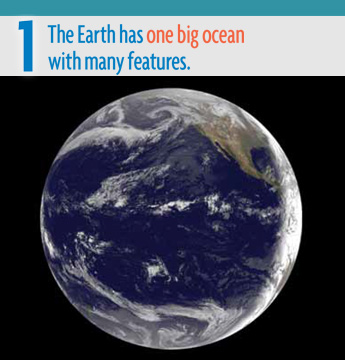
Ocean Literacy Principle 1
Earth has one big ocean with many features.
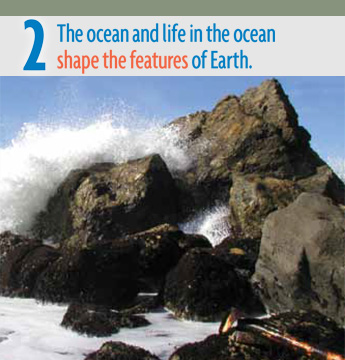
Ocean Literacy Principle 2
The ocean and life in the ocean shape the features of Earth.
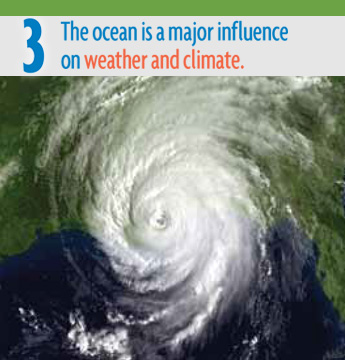
Ocean Literacy Principle 3
The ocean is a major influence on weather and climate.
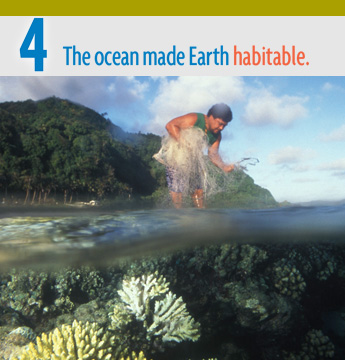
Ocean Literacy Principle 4
The ocean makes Earth habitable.
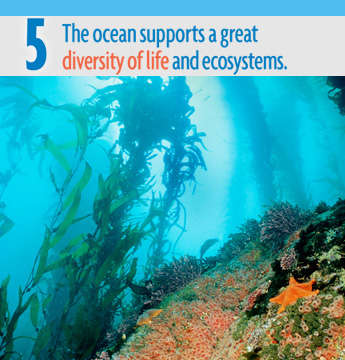
Ocean Literacy Principle 5
The ocean supports a great diversity of life and ecosystems.
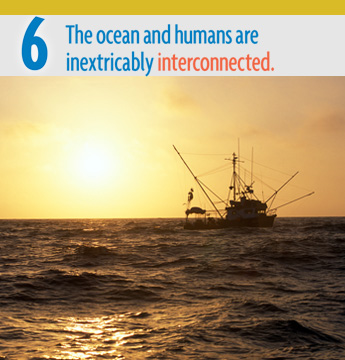
Ocean Literacy Principle 6
The ocean and humans are inextricably linked.
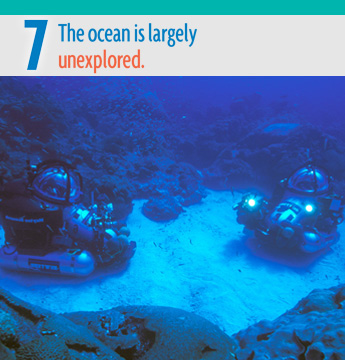
Ocean Literacy Principle 7
